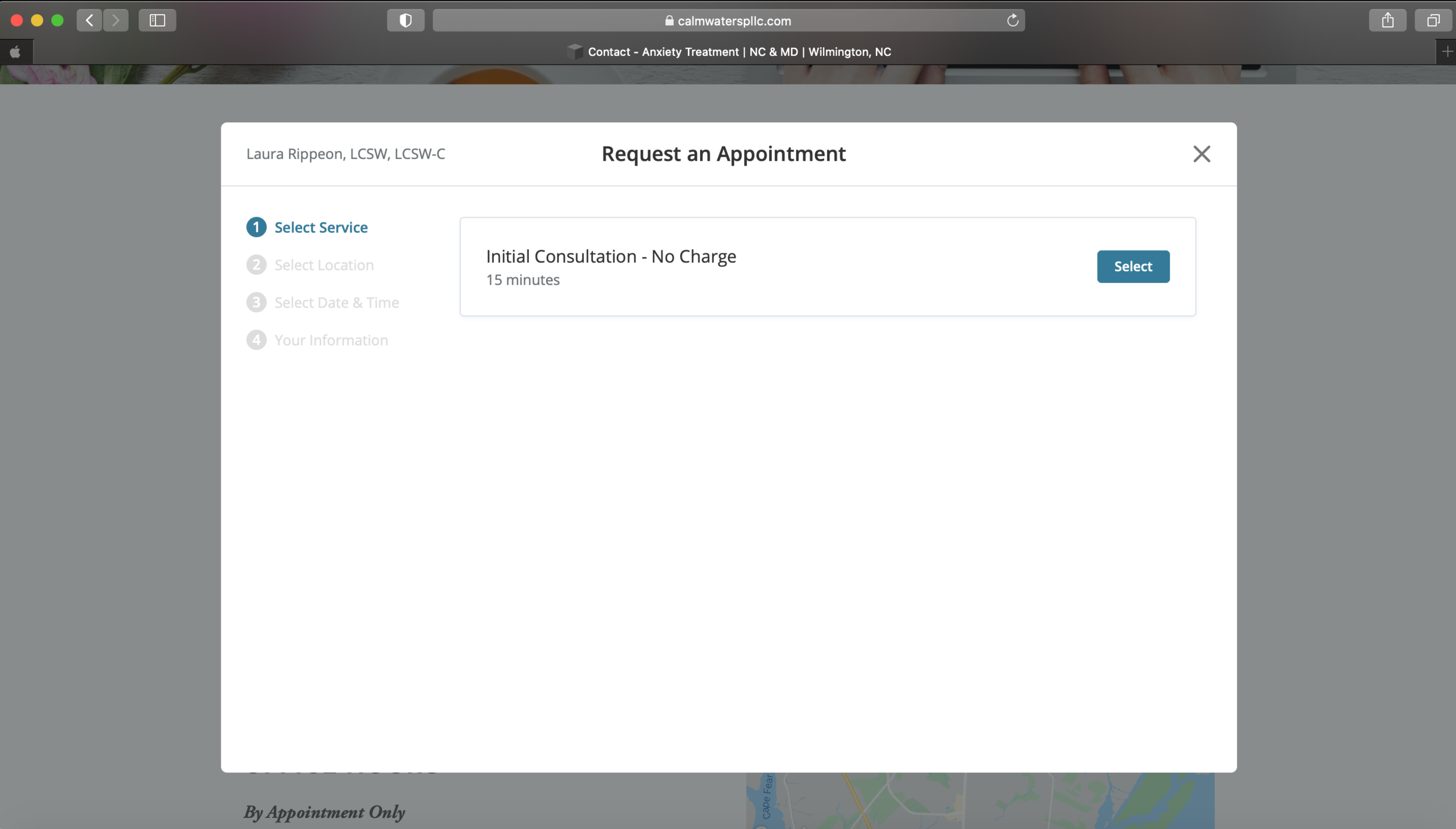Why Therapy for High Achievers is Important
4 Big Reasons Why the High Achiever Personality Should Be in Therapy
Being a high achiever means you are not settling and you are going to stretch yourself to do the best you can do. Sometimes this comes with a price.
I’ve never met a high achiever that was okay with just “settling.”
The high achiever personality can be a lot to keep up with and can have your mind on overdrive some days. You keep pushing yourself to be the best and do the best you can do.
As a woman high achiever, a lot rests on your shoulders.
High achievers can benefit from self-care and going to therapy is one of the best ways to take care of yourself.
In this blog, I’m telling you 4 main reasons why high achievers can benefit from therapy.
I am a therapist in Wilmington, NC, and specialize in therapy for high achievers. I provide anxiety treatment, treatment for perfectionism, therapy for imposter syndrome, and burnout counseling.
I am also dually licensed and provide online anxiety therapy to high achievers and entrepreneurial women in North Carolina and Maryland.
Ready to start therapy with me? Click the button below to schedule your free 15-minute consultation on the date and time of your choice.
By the end of this, you’ll understand why therapy is important for high achievers and helpful therapy styles for the high achiever.
But first things first let’s start by even figuring out what high achiever syndrome is.
What is High Achiever Syndrome?
Having high achiever syndrome or high achiever personality is simply someone who tends to have a lot of ambition and motivation to succeed.
These terms are not a clinical diagnosis but are often used to describe someone with these traits.
Here is a list of common characteristics of high achievers:
Goal Driven
Motivated
Self-Starter
Ambitious
Self-Disciplined
Action Oriented
Top 4 Reasons High Achiever Personality Can Benefit from Therapy
High achievers experience many challenges that often are not understood by others. These things listed below make up a big piece of what is going on under the surface.
Reason #1 High Achievers Can Benefit from Therapy: High Achiever Anxiety
High achievers often experience a lot of anxiety due to the pressures they place on themselves. Understandably so because the drive is in them to do well.
However, this drive and pressure often increases anxiety. Worries show up more frequently and those worries can keep you up at night.
Poor sleep, feeling overwhelmed, constant worrisome thoughts, and other anxiety symptoms can make it hard to operate at your best.
Find out more about receiving anxiety therapy in Wilmington, NC.
Reason #2 High Achievers Can Benefit from Therapy: High Achievers and Perfectionism
While there are some differences between high achievers and perfectionists, there is also some overlap.
High achievers that also struggle with perfectionism make for a perfect combination that leads to burnout (more on that in minute).
Expectations are set so high and your only focus is the end game, but when it comes to perfectionism, it is never enough. The goal is a moving target and the high achiever with perfectionism just keeps going.
Find out more about receiving therapy for perfectionism in Wilmington, NC.
Reason #3 High Achievers Can Benefit from Therapy: High Achievers and Imposter Syndrome
When it comes to imposter syndrome, self-doubt is huge and a major driving factor. High achievers with imposter syndrome feel like a fraud and push themselves to do whatever they can to prove this wrong to themself and others.
That self-doubt is part of their “not good enough” story that stays on loop, like a bad 90’s children sing-a-long song (cue Lamb Chop’s Sing-A-Long this is the song that never ends…).
Find out more about receiving therapy for imposter syndrome in North Carolina.
Reason #4 High Achievers Can Benefit from Therapy: High Achievers and Burnout
This one is really easy to come by if you are not taking good care of yourself.
With all reasons listed above, burnout will easily sneak up on you and for some, it’s hard to realize until you’ve hit the burnout phase.
Constant pressure, buildup, and pushing yourself are a recipe for poor motivation and lack of creativity that kept you going with your drive. This is true when experiencing burnout at work and in your personal life.
Being a high achiever can also set you up for having poor boundaries that we often require to take good care of ourselves.
Find out more about receiving burnout counseling in North Carolina.
What High Achievers Should Expect When Starting Therapy
Naturally, a high achiever may want the quick fix or fast solution and unfortunately, most of the time therapy isn’t that.
Often, the therapy process can be slow depending on certain therapy models your therapist uses. However, the therapy process typically looks like the following…
Step #1: Scheduling a Consultation and the Intake Appointment
First, Scheduling a consultation is a very quick and easy process. You can online book on a day or time that works best for you and you receive a very brief questionnaire to complete. This gives a basic understanding of why you are seeking therapy services and guides the call much easier and more quickly.
See below for an example of what the online booking process looks like
Next, during the consultation call, I will get a little bit more information about you and also tell you about myself as an anxiety therapist in Wilmington, NC and receiving therapy services at Calm Waters Counseling.
Lastly, if we both agree we would like to move forward with working together, we determine a day and time to schedule the intake appointment. After our call, I will also send you all of the intake paperwork through your client portal system and create your appointment reminder for your first session.
Step #2: Attend Your First Therapy Appointment
At this time, we talk more in-depth about the things you are wanting to come into therapy for and expand a bit more about the information you provided in your intake paperwork.
We may also start discussing goals for therapy and developing a treatment plan or a roadmap as to how those goals can be achieved.
Step #3: Continue Attending Therapy Sessions
Therapy can be a process and it is difficult to estimate how many sessions it will take. This is something that you should talk with your therapist about and another important reason for making goals and a treatment plan (see step #2) for your treatment.
An important reminder is that therapy sessions may not always leave you feeling good and that doesn’t mean that therapy isn’t working.
If you have concerns or questions about the therapy process, it is important to speak with your therapist.
What Styles of Therapy are Helpful for High Achievers
I have found when high achieving women come into therapy to address their anxiety, stress levels, perfectionism, and burnout, therapy treatment approaches such as cognitive behavioral therapy, acceptance and commitment therapy, and using mindfulness techniques often work well.
Using CBT for High Achieving Women
Cognitive behavioral therapy or CBT can work well for high-achieving women because it focuses a lot on challenging and reframing negative or anxious thoughts and working to identify and break down unhelpful core beliefs.
Click the link to learn more about CBT
Using ACT for High Achieving Women
Acceptance and commitment therapy or ACT is an offshoot of CBT and is considered a third wave therapy approach. ACT aims to work on changing the relationship you have when negative or anxious thoughts and feelings are showing up. ACT is a very present-oriented therapy approach and requires the client to take action in their life.
Click the link to learn more about ACT
Using Mindfulness for High Achieving Women
Mindfulness is about being in the present moment and acknowledging and accepting what is happening without trying to change what is happening.
Mindfulness is a major part of acceptance and commitment therapy work and a lot of skills taught in ACT are mindfulness skills.
Mindfulness can also be easily incorporated into cognitive behavioral therapy approaches as well.
Click the link to learn more about using mindfulness in therapy or to learn some quick and easy mindfulness exercises you can do during the day.
What High Achievers Should Expect When Finishing Therapy
Most often when high achievers complete the therapy process they experience some of the following:
Feeling more connected in their relationships
More present in their day to day life
Feel more complete outside of their work
Obtain practical tools to help with mood and thoughts
On track to build the life they want
Excitement about life
Set healthier boundaries to be able to enjoy a life outside of work
Begin Therapy for High Achievers in Wilmington, NC at Calm Waters Counseling
Being a high achiever can feel pretty lonely at times no one gets it. You have a drive inside of you that fuels you. Sometimes this can be a blessing and curse and it can cause challenges in your life like the ones listed above.
If you find this to be true, know that it happens and is normal. Therapy can help to address and understand these things. Therapy can provide an outlet and give you resources to take better care of yourself.
Get started in therapy at Calm Waters Counseling by following these 4 simple steps:
Click the button below to schedule your free 15-minute consultation
Complete the brief questionnaire sent to your email before the consultation
Meet with your caring therapist
Start living your life with less anxiety
Online Therapy for High Achievers
There are a lot of benefits of online therapy and now more than ever online therapy is becoming more accepted and more of the norm.
High achievers consistently are on the go, busy, or have a lot going on in their life and online therapy can be a perfect fit for their lifestyle. Online therapy is effective and be easily adapted to treat many issues and can provide anxiety relief.
Act for Anxiety with Online Therapy
CBT and Online Therapy
Online therapy allows the therapist and client to see and hear each other over a secure video platform. This technology is HIPAA compliant to ensure safety and privacy for therapy sessions.
I am an online therapist in Maryland and North Carolina. For more information about online therapy in your state, click the links below.
Online therapy in Maryland
Online therapy in North Carolina
Still, have questions? Click the buttons below
Written by: Laura Rippeon, LCSW, LCSW-C
Updated 3/15/23









